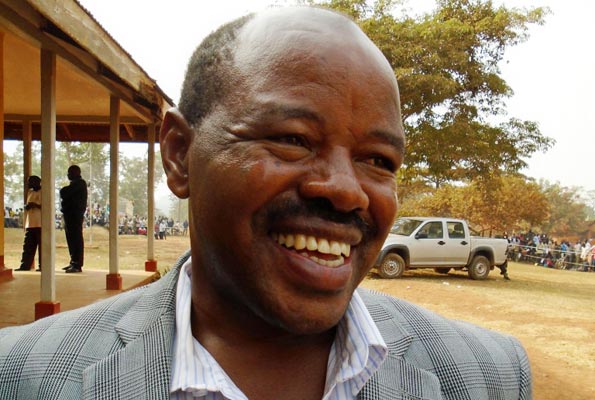From his office on the sixth floor of the Finance Ministry block in Kampala, Kenneth Mugambe, the Director Budget can look down contentedly at the Nakasero neighbourhood of the rich. The downtown poorer sections of the city are blocked from his view. Donning a stylish purple shirt and a matching tie with red and blue stripes, Mugambe can afford to be bullish about the future of the Uganda economy and dismissive about widely circulated claims that the budget he oversees is not performing and that “Uganda is broke”. A key performer at the Finance Ministry—he was voted the Director of the year 2015—Mugambe has a different explanation. But what he cannot wish away is that once again, it appears, the post-election period is causing jitters in the economy.

At the heart of the current economic tension are three separate but related events; the first is the government’s decision last month to push through parliament a Shs1 trillion supplementary budget, then the government’s decision to aggressive tighten public expenditure over the election, and finally periodthe government’s decision to borrow US$200 million (Approx. Shs670 billion) from the Eastern and Southern African Trade and Development Bank, known as PTA Bank at the height of the general elections.
Commenting on the April government decision to push parliament to approve a supplementary budget of over Shs. 1 trillion, Mugambe told The Independent that the bulk of this cash was not new money but reallocations from one government department to another.
The Defence Ministry, State House, the Lands Ministry and the Office of the Prime Minister are some of those that benefited from the supplementary.
Mugambe’s satisfied tone contrasts sharply with the frustration felt in conversations with budget controllers at some government departments. As the critics see it, while in the previous elections, President Yoweri Museveni has raided the central bank for campaign cash, including that outside the budget, this time around officials were keen to spend within the budget. This means that money was diverted from some areas and spent on elections.
Ministry of Finance officials say they have spent over 100 percent of the budget but government departments are struggling to meet their obligations amidst talk that the 2015/16 budget was suppressed by 30 percent
Pumping more money into the economy during the 2011 election sent the economy spiraling with post-election inflation hitting upward of 30 percent. It took a lot of cleaning for the central bank and the finance ministry to restore order.
Observers say that having picked lessons during that period, officials in charge of fiscal and monetary policy invested heavily in preventing the repeat of that situation and are in celebratory mode even if the public and government departments are feeling the pinch of the squeeze. According to BoU, inflation remains under 8 percent.
30% budget squeeze
Amos Lugoloobi, the outgoing chairman of parliament’s budget committee who also sits on the committee on Finance, Planning and Economic Development told The Independent that there was a budget suppression of 30 percent. This means that the government only dispersed to MDAs 70 percent of what it had budgeted for them.
Lugoloobi said it was the third and fourth quarter that were affected most. Part of his explanation is that the budget for elections was quite heavy, certain things had not been budgeted for and because government wanted to avoid inflation, it made sure it spent only what it budgeted for.
For instance, just before elections, a major donor, the Democratic Governance Facility (DGF) declined to release some Shs4.5 billion it had committed to the purchasing of equipment to transmit elections after the Electoral Commission (EC) sparked a row by cancelling an agreed contract and awarding the deal ‘secretly’. Government said it would fund the project. Lugoloobi says there were other such incidents that have meant accumulating public debate. He insisted, however, that the situation was manageable.
“The huge supplementary budget that we approved has helped a bit and other MDAs have managed by not committing,” Lugoloobi told The Independent.
Mugambe places the suppression, or budget squeeze, at between 5% and 10%. The latest figures, which Mugambe shared with The Independent show that total domestic development expenditure alone was Shs4.2 trillion and of this Shs3.8 trillion or 94.1 percent has already been spent. He emphasised that by the time the year ends, “no vote will operate below 90 percent”.
But David Walakira, the Budget Policy Specialist at the Civil Society Budget Advocacy Group [CSBAG], said they have found out that in total the Ministry of Finance has released a total of Shs3.38 trillion as development expenditure for the FY 2015/16 against an approved budget of Shs9.7 trillion for development expenditure.
“This is only 35% of the approved development budget,” he told The Independent.
 The Independent Uganda: You get the Truth we Pay the Price
The Independent Uganda: You get the Truth we Pay the Price



